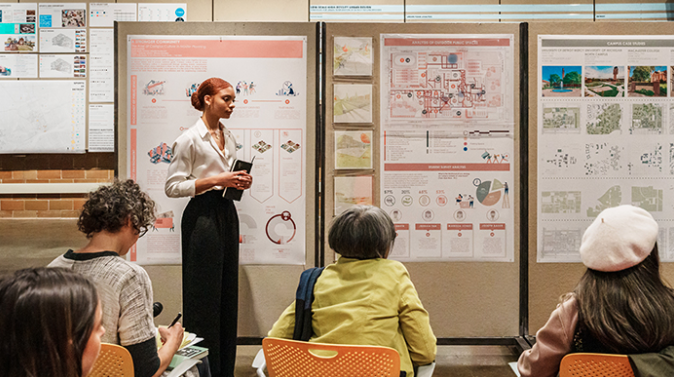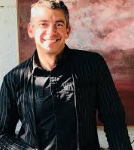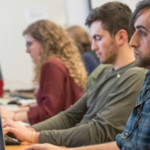
- Kim Kisner
- Education
- 04/23/2024
A New Workforce That is Designing Communities Based on the Influences of Spaces

For nearly sixty years, the University of Detroit Mercy School of Architecture and Community Development has been educating designers and planners.
The school is committed to preparing students to address urban revitalization, environmental justice, and sustainability, and through its design studios, Master of Community Development, Detroit Collaborative Design Center, and international studies program, offers real-world experience.
Dean Dan Pitera talked to SBN Detroit about the school’s approach to preparing students for the practical applications of sustainable design.

Q: What can you tell us about the community development aspect of the school?
A: If we take a child who is enrolled in a poorly designed and unmaintained school and then put that same child with the same faculty in the same neighborhood in a well-designed school, the child will be nurtured and developed differently.
The space around a child – a person – is important. The spaces we are in influence how we are as people just like nutrition influences health and wellbeing. So why aren’t our communities designed differently? And from a school perspective – how do we teach that? We ingrain community development through the lens of social justice throughout our curriculum, and we start on day one of the program.
For example, within a Structures course we embed these concepts, so students begin to see that whether they are designing a museum or affordable housing, all designs should be looked at through this lens.
Q: The school is internationally recognized for its environmental justice-driven and student-centered approach. Talk about this approach and how it’s different.
A: We help students understand that climate change and climate justice are linked.
We sit in the Great Lakes region with Michigan at the center. Our buildings and our communities must be prepared and designed for climate migration, so our students must obtain hands-on experience.
Q: You led the Detroit Collaborative Design Center for years. Is this center unique when it comes to design schools?
A: Only a handful of architecture schools have something like this. I modeled it after the medical field, where teaching hospitals align with and collaborate with medical schools.
The DCDC is a true architecture office within the school of architecture. It works exclusively with nonprofit organizations and government agencies. There, students get paid to work, and they work with professional architects, urban designers, and landscape architects.
It is essential to take theory and practice and bring them together.
Q: How do you prepare future generations of architects and planners to think sustainably throughout their careers?
A: We’ve been teaching this way for a long time. Now, the students coming in want education around sustainability and that’s exciting for us.
I think the most effective way to teach is not class by class, but through concepts that are continually woven throughout the curriculum.
The concepts of social justice, climate change, and building sustainable communities are woven throughout every class and we start on day one, as I mentioned previously.
I teach Introduction to Architecture to first-year students, and I introduce the United Nations development goals. I teach that architects essentially create 40% of greenhouse gases produced annually. The emissions come not just from the buildings themselves, but the materials used to build, and the processes taken to create these materials.
Students come in thinking in terms of brick-and-mortar buildings, and we teach them immediately about the impacts on the environment and the communities around the buildings.
We have a Zoning and Codes class in which students learn about redlining, deed restrictions, and blockbusting. Most professors at other schools are not teaching this.
So, the students are learning and digesting these things constantly throughout their five years.
Q: What do you think your graduates take out into the workforce that’s different?
A: The ability to adapt to change.
The program they are working with now to design lighting or a certain type of heat will likely not be the same program in four years. Things change fast.
I asked my students in the fall of 2022 if they thought we’d be using AI going forward. They laughed. At the start of 2023, I asked them what tools we as architects would be using, and they all said AI. So, we work with the tools we have today but also train the students to be flexible and adaptable. They will need these skills to design and also to sustain their careers and lives.
Be sure to subscribe to our newsletter for regular updates on sustainable business practices in and around Detroit.
Kim Kisner
- All
- Business
- Community
- Education
- Events

Unique Monique Scented Candles, a Detroit-based business founded by Monique Bounds., aims to produce candles and household products with clean ingredients and local supply chains. What began as a personal hobby during college has evolved into a full-time venture producing coconut oil and soy-based candles made with essential oils and locally sourced materials. SBN Detroit interviewed Bounds about launching a sustainable product line, sourcing challenges in Michigan, and...

Eastern Market Partnership, in collaboration with the City of Detroit’s Office of Sustainability Urban Agriculture Division, has announced $240,000 in grant funding to support Detroit-based farmers and farmer collectives. The grants will advance food access, climate education, sustainable land use, and economic opportunity, with priority given to Black- and Indigenous-led farms, youth-led initiatives, and projects rooted in historically disinvested neighborhoods. The recipients – ranging from cooperatives and community...

Citizen Robotics is a Detroit-based nonprofit that advances the use of robotics and digital manufacturing in residential construction, focusing on improving productivity, sustainability, and long-term affordability. Best known for its early work in 3D-printed housing, it explores how alternative construction methods and new financial models can reduce material waste, lower lifetime operating costs, and enhance the resilience of homes. SBN Detroit interviewed Tom Woodman, founder and president of...







